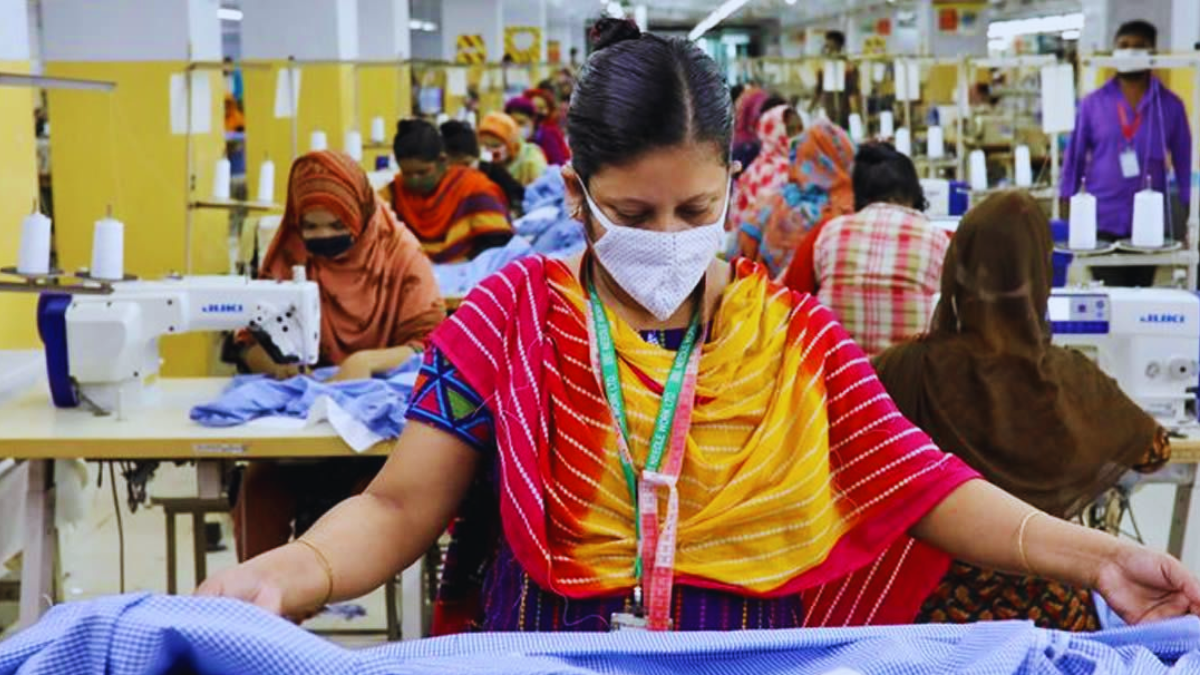News
Exploited & Fed Up: 17 Foreign Workers Desperate to Return

A new exploitation of foreign workers has cast a shadow over the paradise image of Mauritius. Young Bangladeshi women, unable to cope with the exploitation they claim to face on a daily basis within their company, are at the center of this issue.
This situation has angered the unionists of the Confederation of Private Sector Workers (CTSP), who are taking a stand against these abusive practices.
There are a total of 17 women. Unable to tolerate the stressful and abusive working conditions any longer, they reached out to the CTSP.
They shared details of their daily lives with the team led by Reeaz Chuttoo. They are already facing a monthly deduction of Rs 2,000 to Rs 3,000 for unspecified reasons, a practice that is not shown on their pay slips.
For example, they explained that criticizing working conditions results in a salary reduction, as does using the restroom outside of break times.
Furthermore, eight workers have expired passports. Three of them each gave Rs 1,500 to their employer between October and December last year for passport renewal, but this has still not been done.
As a result, these women are in an illegal situation in Mauritius and fear the authorities. But the problems do not end there for them.
They face difficulties even in basic aspects such as accessing restrooms, having to fetch water elsewhere in buckets for their basic needs.
Chuttoo, who has taken on the case, reveals: “They also claim to not receive their monthly food allowance of Rs 1,200 on time.
This is supposed to be paid on the 20th of each month, but they only receive it on the 27th or 28th, while their monthly salary is paid on the 10th.
In addition, they receive their salary in cash and would prefer to receive it through a bank to avoid any falsification.” Their working hours are also extremely demanding.
During the week, they work from 7:30 am to 8:30 pm, but sometimes until 6:30 pm when there is not enough work.
On Saturdays, they work from 7:30 am to 3:00 pm. Furthermore, on Sundays and public holidays, they are forced to work from 7:30 am to 1:00 pm and sometimes until 5:00 pm, especially when there are orders to process. They also claim to not be paid at all for these extra hours.
To record their presence, they must use a fingerprint recognition device. Eight of them fled due to the constant verbal harassment from their employer.
The employer even physically assaulted one woman at the workplace, while two others claim to have also been victims of such acts of physical violence from their employer.
About four months ago, the employer confiscated the mobile phone of one of them for 20 days, claiming she used it for two extra minutes after lunch.
Now, these women wish to return to their home country. “We are the only country where an employer can expel a foreign worker without valid reason.
If an employee comes to talk to us in the evening, they can be expelled because their employer simply has to send an email to cancel their work permit with the Passport and Immigration Office, and the worker is expelled,” highlighted Reeaz Chuttoo.
The president of the CTSP emphasizes the importance of respecting workers’ rights, citing the convention of the International Labour Organization on forced labor: “Indeed, a person who works in fear is equivalent to a person who is in forced labor.”
He also sheds light on the tragic consequences of expelling foreign workers, who may be forced to end their lives after investing considerable sums to come to Mauritius, sometimes even putting their families in pawn.
He laments the lack of diligence of successive governments to establish good working conditions for foreign workers, indicating that Mauritius is on the red list of countries where foreign workers are deprived of justice and face violence in their workplaces.
This situation brings shame at international trade union conferences, especially since Mauritius presents itself as a welcoming land.
The union representative calls for awareness and concrete measures to guarantee the rights of foreign workers.
Regarding the case of the 17 Bangladeshi women, Reeaz Chuttoo hopes that the ministry will take appropriate actions.
“The employer even locked them in their dormitory, claiming to have found the door wide open and fearing for their safety.
Furthermore, they are already paying for accommodation and food in accordance with the law governing free trade zones.”
He recounts a previous incident where an employer hired five Indians for 15 days, but then expelled them from the country when they discovered they were underpaid.
“The labor office called him in, but it had no consequences, as he knows that no one will prosecute him in this matter.”
Reeaz Chuttoo therefore calls for a law to be put in place to allow unionists to defend these workers, even if they have been forced to leave the country to pursue their dishonest employers, in order to prevent the dehumanization of these workers.
The CTSP does not rule out the possibility of a hunger strike to make the voices of the 17 Bangladeshi women heard.
Source: l’Express











